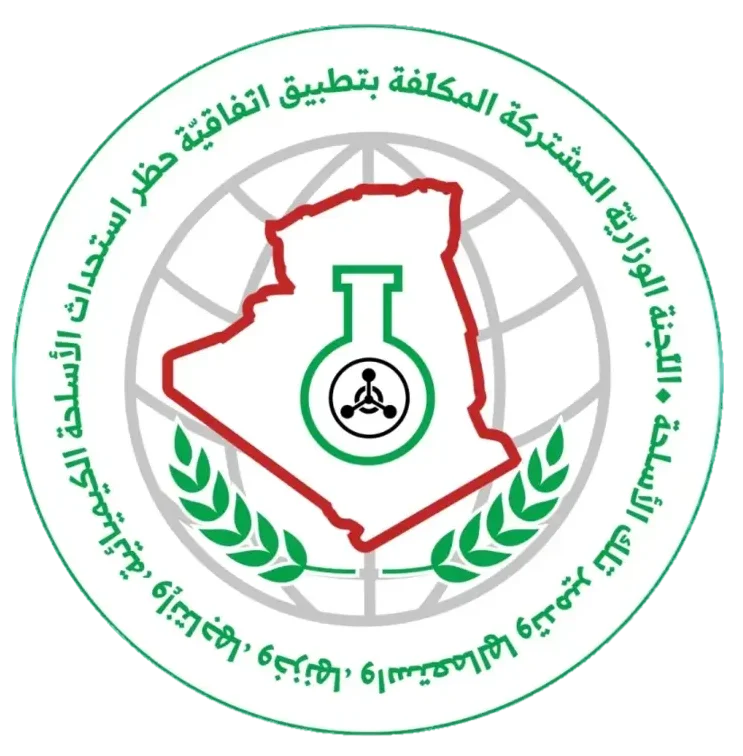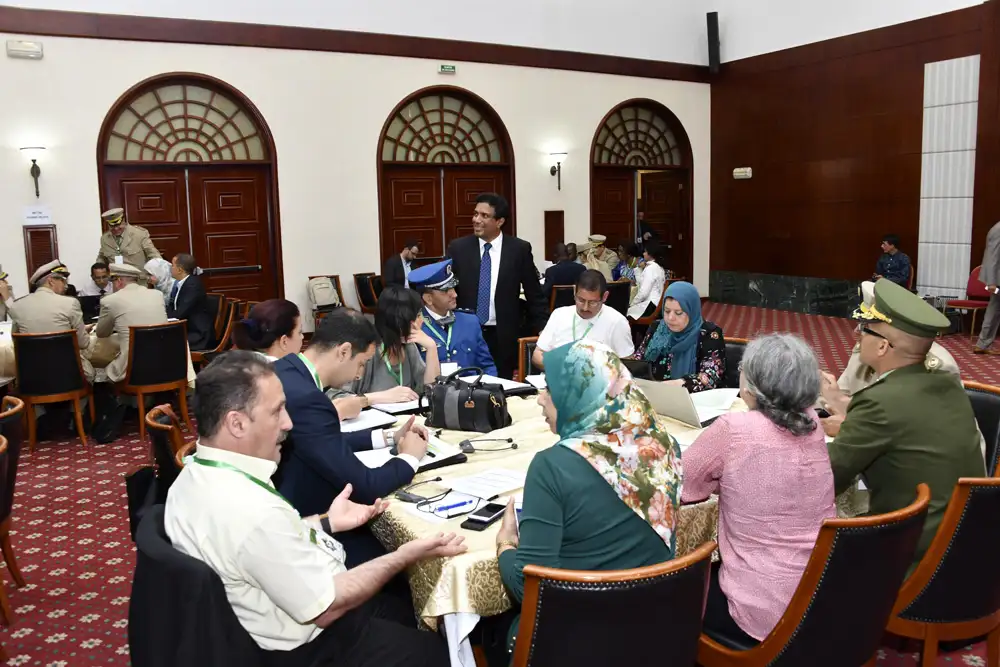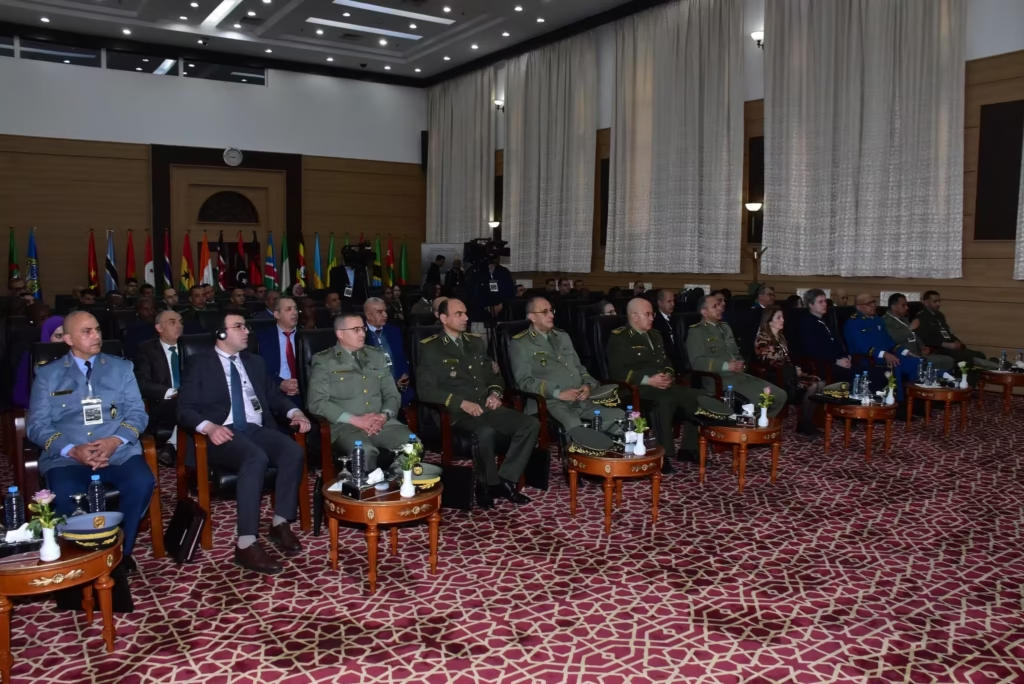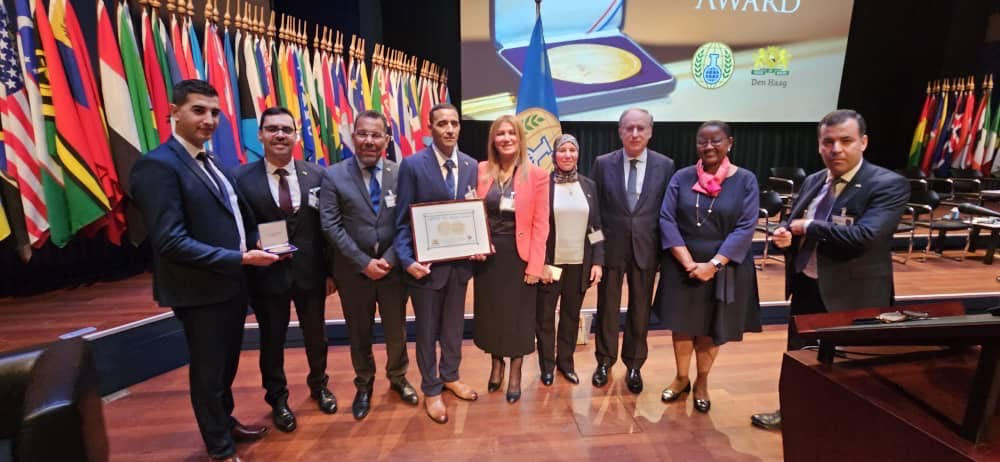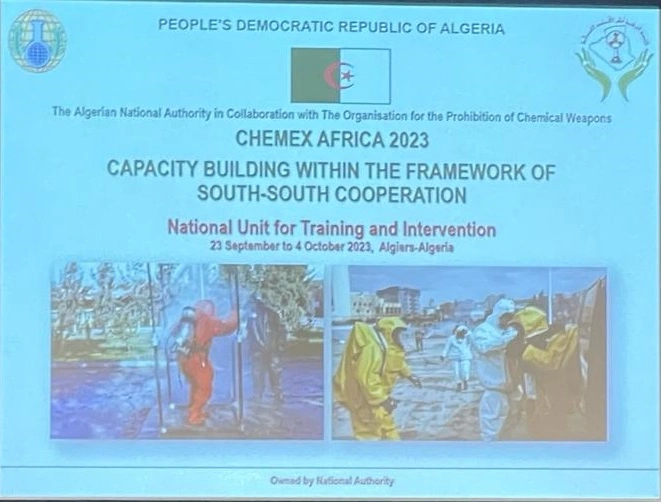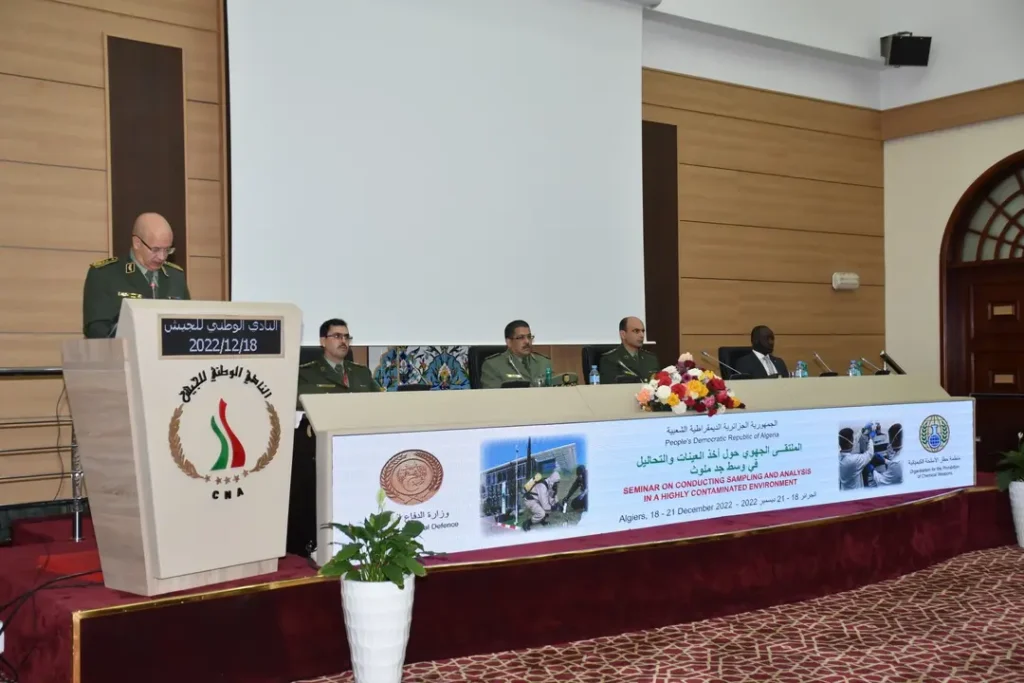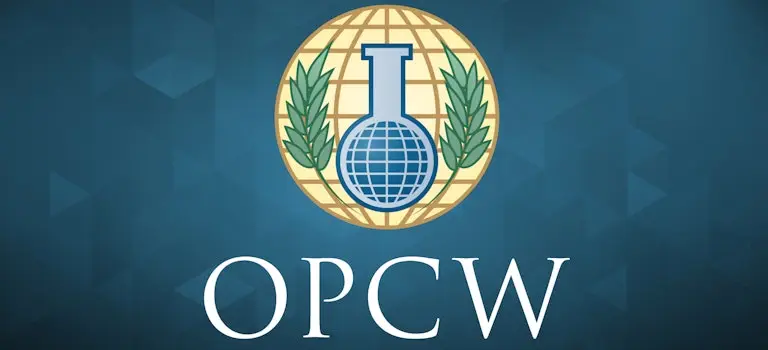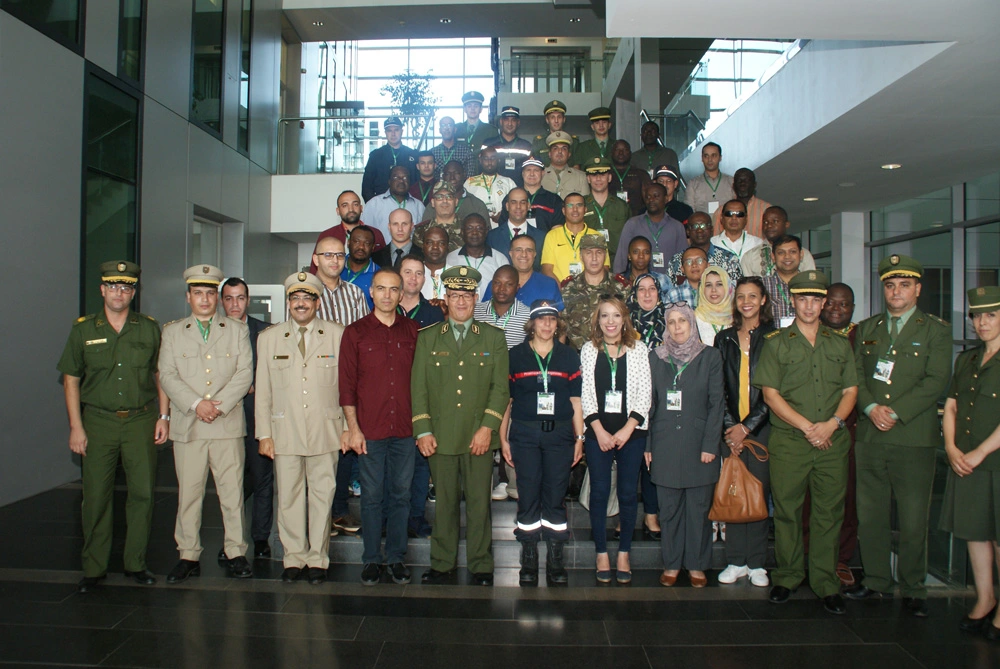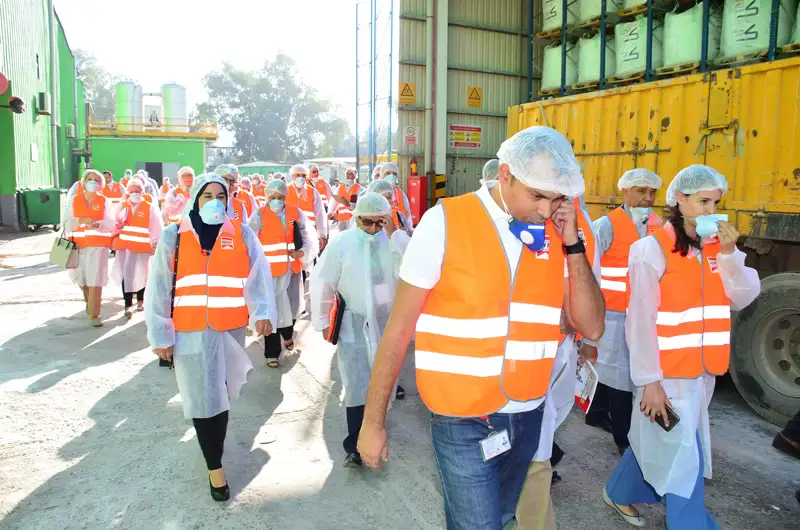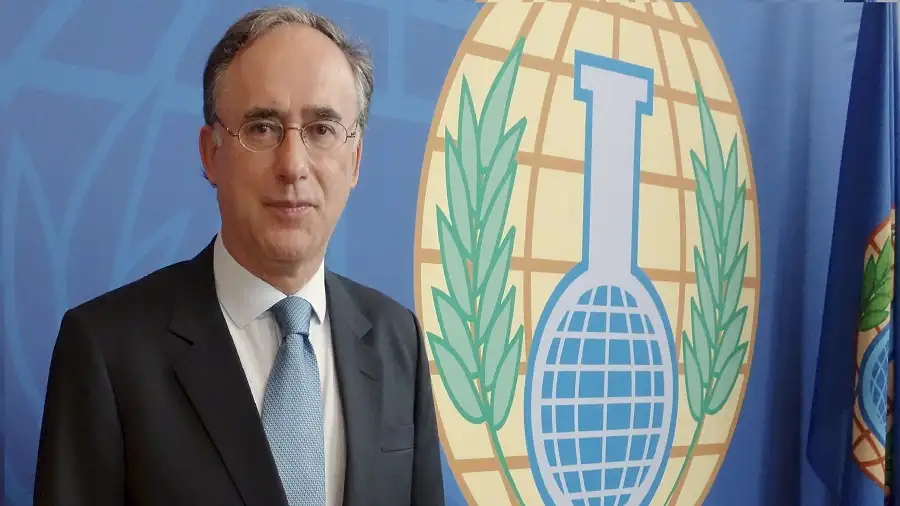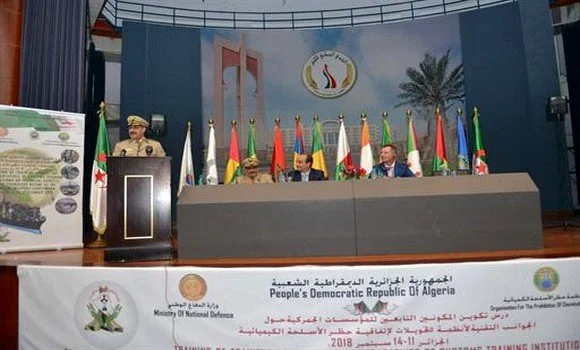The importance Algeria attaches to ensuring the traceability of chemical products and the safety and security of sensitive industrial facilities is a testament to its leading role as one of the first countries to sign and ratify the Chemical Weapons Convention (CWC) and to support the efforts of the Organization for the Prohibition of Chemical Weapons (OPCW).
With this in mind, the Ministry of National Defense organized, jointly with the OPCW, a Regional Seminar on the Chemical Weapons Convention and Chemical Safety and Security Management from June 23 to 25, 2019, at the National Army Circle. The seminar was led by national military and civilian experts, as well as foreign experts, representatives of the Organization’s member countries, and various relevant national organizations.
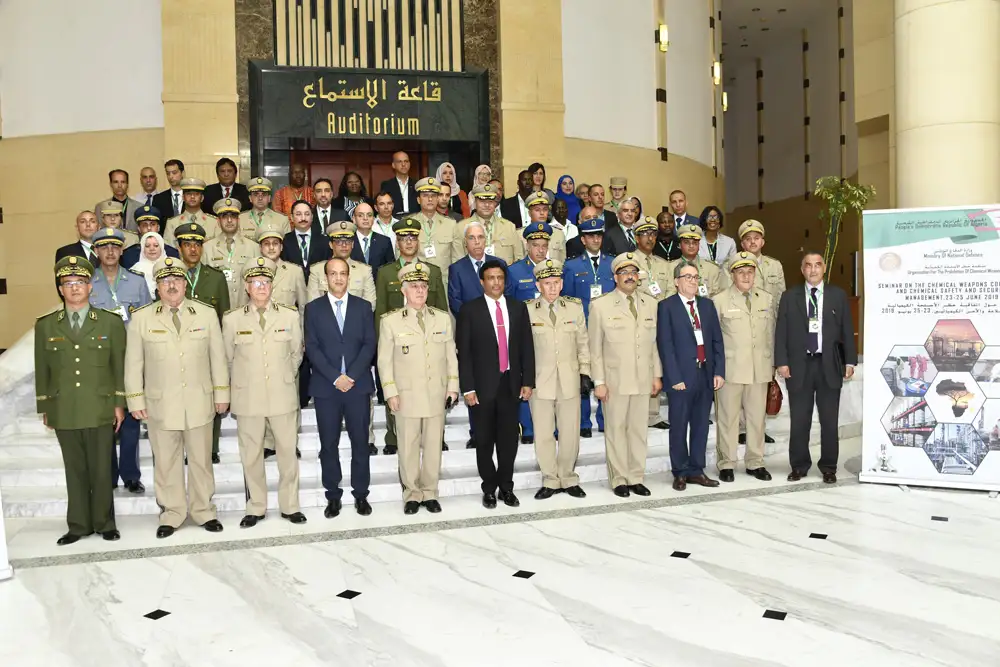
The opening of this seminar was chaired, on behalf of Lieutenant General, Vice Minister of National Defense, Chief of Staff of the National People’s Army, by Major General Ferhah Mehena, Director of Financial Services of the Ministry of National Defense.
In his opening address, the Director of Financial Services of the Ministry of National Defense highlighted Algeria’s leading role in the implementation of the CWC: “As a member of the Executive Council, since the Convention’s entry into force in 1997 until today, Algeria has worked throughout this period for its rigorous implementation and advocates for the promotion and strengthening of Africa’s position within the Organization, vigorously defending our continent’s interests and concerns, within the framework of the Convention’s universality.” He added: “It is in this spirit that Algeria has organized several activities, including most recently a regional course on the Convention’s transfer regimes, on the eve of the visit of the Director General of the OPCW, Mr. Fernando Arias, to Algiers last September, knowing that this was his first official visit following his appointment in July 2018.
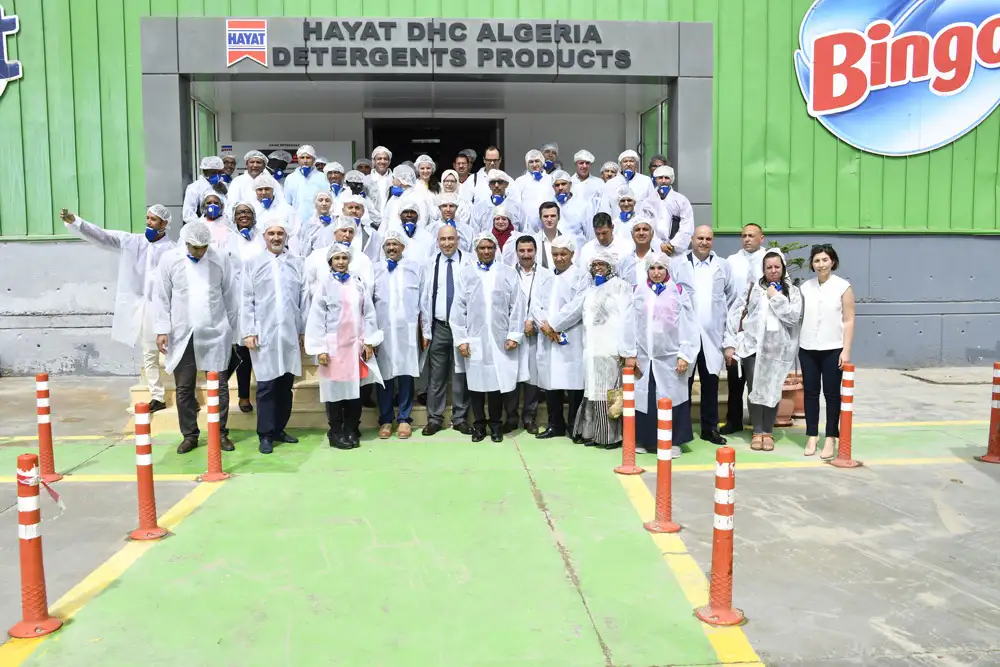
In fact, it represents continuity at the OPCW level, the role that Algeria has consistently played in favor of general and complete disarmament in various international forums.
“The OPCW’s achievements are the result of a global effort involving nations, the chemical industry, scientists, and civil society to create and implement the international disarmament treaty, considered the most successful in the world.”
Regarding the expected objectives of this regional seminar, Colonel BELHADJ Boualem, Executive Secretary of the Interministerial Committee in charge of the Implementation of the Convention on the Prohibition of Chemical Weapons, said: “We are convinced that this seminar should reinvigorate the commitment made by African countries to achieve the goals of the Convention and to achieve a new vision of the world based on the peaceful use of chemistry. We are convinced that holding the seminar for the sustainable development of the concept of safety and security as well as that of the traceability of chemicals will give Africa an opportunity to join a partnership with this Organization in accordance with the standards of the Convention.”
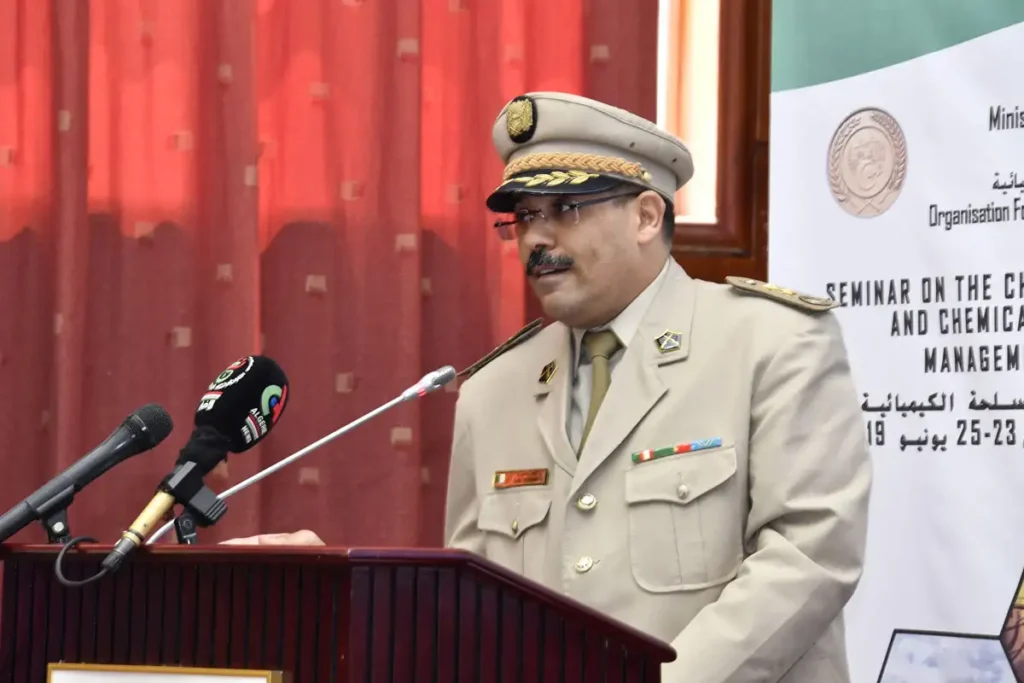
The seminar provided a step-by-step guide on how to establish and manage a safety and security framework in a chemical plant, aimed at small and medium-sized enterprises. “Learning how to reduce and eliminate safety and security risks in chemical plants is essential to preventing accidents and the misuse of chemicals,” said Rohan Perera, OPCW’s International Cooperation Officer. The work of this seminar was divided into four (04) sessions including eight (08) conferences dealing, overall, with strategies for managing the safety and security of chemical products, the coordination and protection of States Parties against chemical weapons, covering both elements and detection equipment and alarm systems, protective equipment, decontamination equipment and decontaminants, the role of States Parties in managing the safety and security of chemicals at the national level, the threat of chemicals to security and finally, a round table on the quantitative assessment of risks related to chemical security.
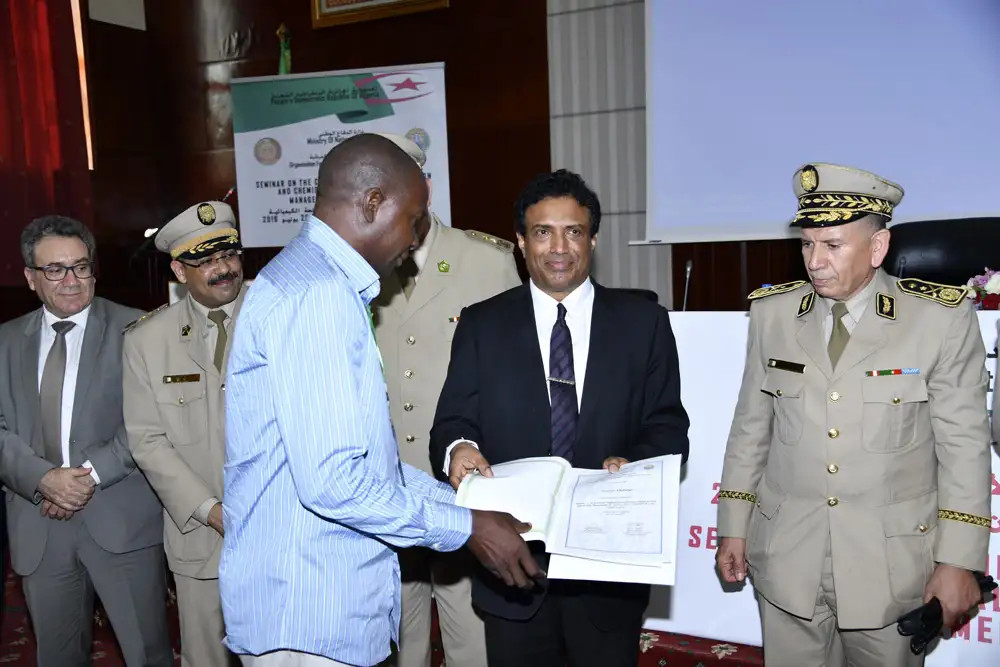
The workshop program included briefings on the experiences of various African countries in safety management in the chemical industry. Topics covered included: awareness-raising within the industry, chemical safety risk assessment, and security for incident prevention. The final day of the seminar was devoted to a visit to a factory site classified as “inspectable” by the OPCW.
